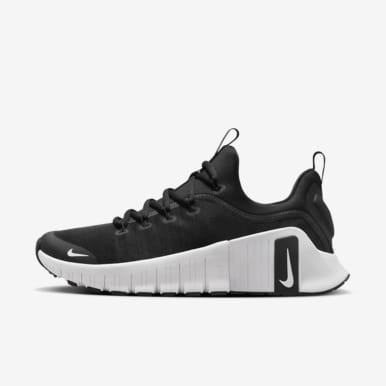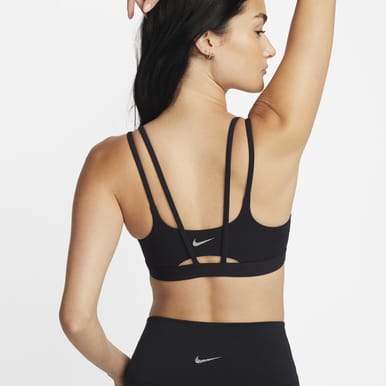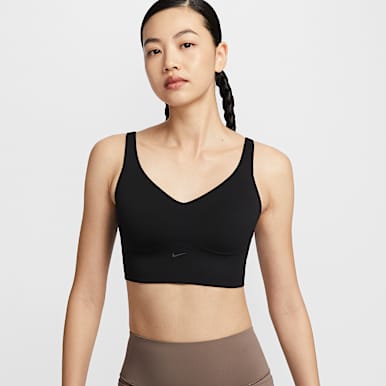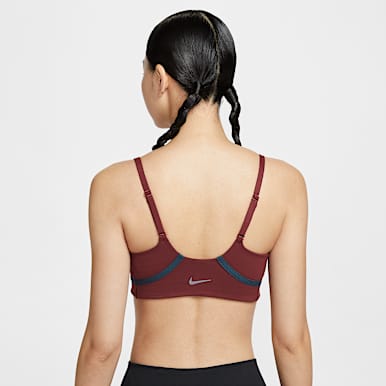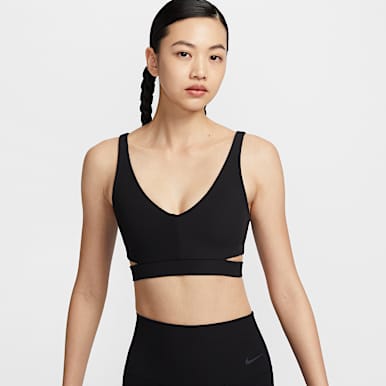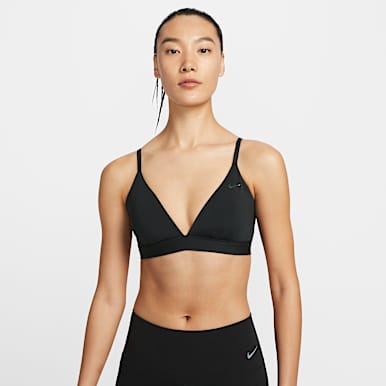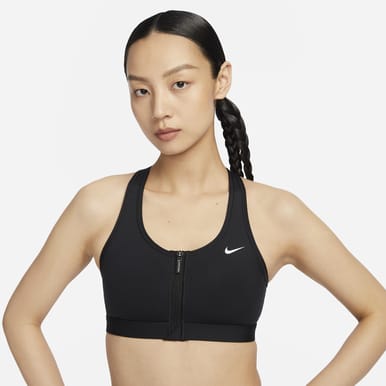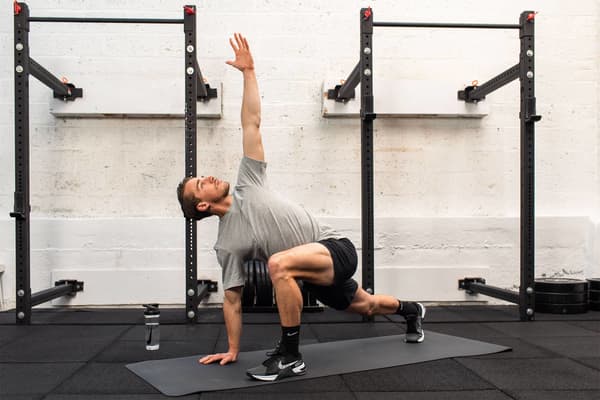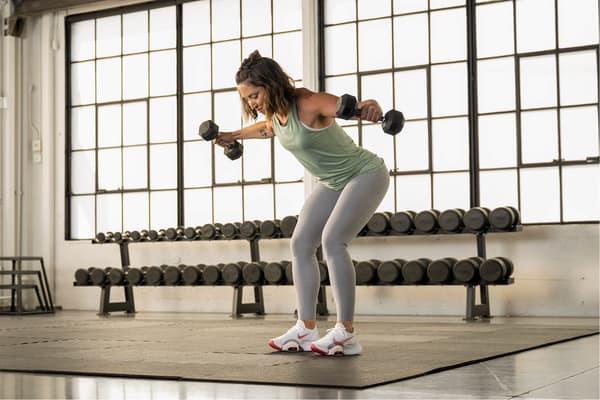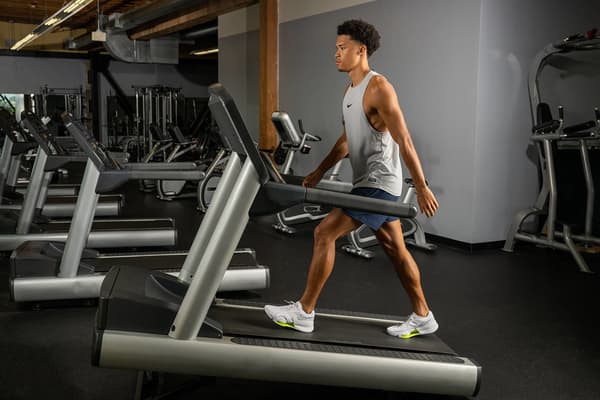Does It Matter if You Bench-press With Dumbbells or a Barbell?
Sport & Activity
Two certified strength and conditioning coaches explain the advantages of each tool—and which one to use first.
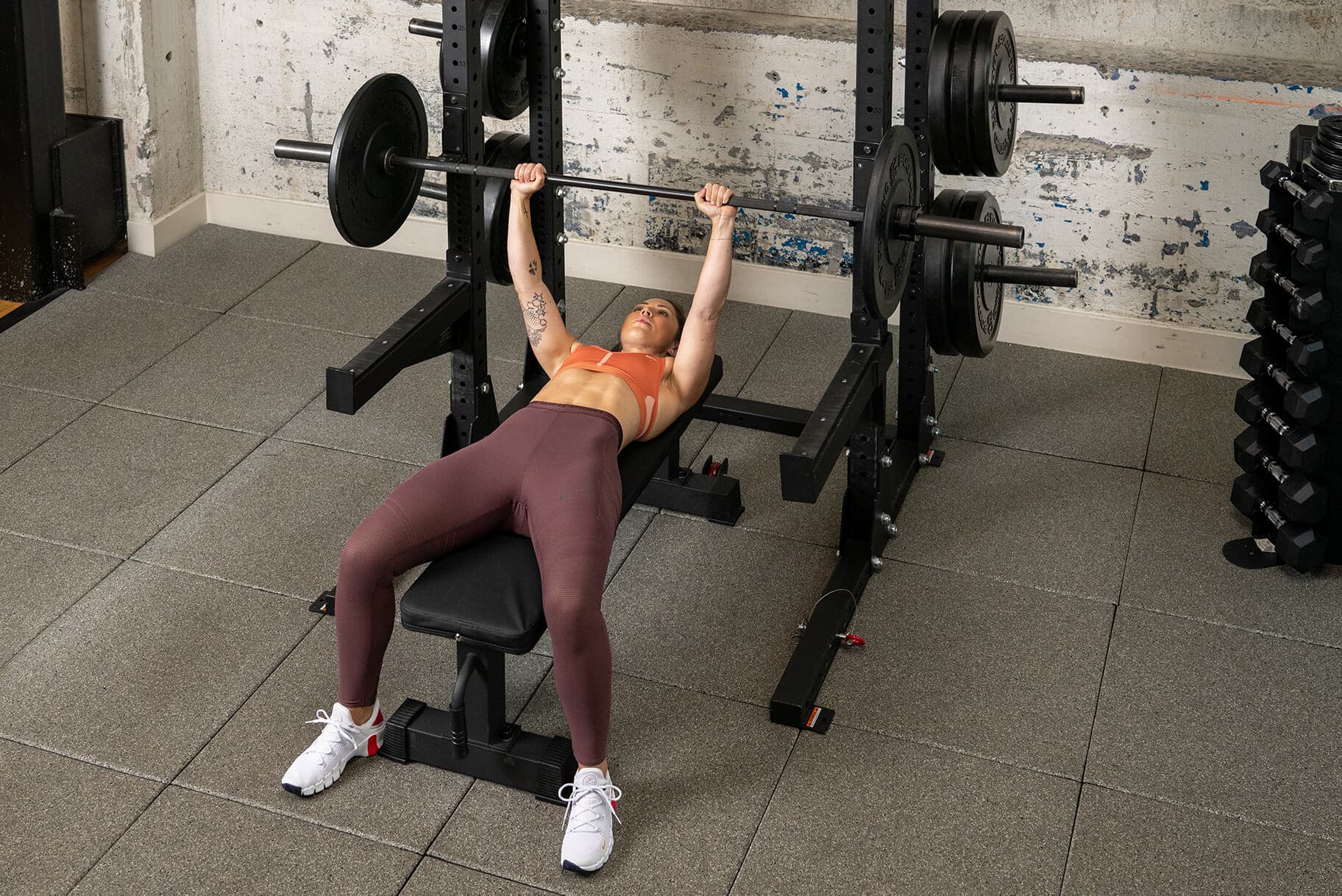
Bench presses are a fundamental exercise that can increase upper-body strength. The good news: you can do this move with a variety of tools and equipment.
However, of all the modalities and tools available, two types are perhaps in the highest frequency: dumbbells and a barbell. Enter the age-old debate: dumbbell vs barbell bench presses—which is most effective for strength training and power?
As is the case with many things, it largely depends on the individual.
"The question of whether to go with dumbbells or a barbell for bench presses depends on a few factors, including what your goals are and where your fitness levels are at", said Albert Matheny, RD, CSCS.
Here's how to figure out the right option for you, plus get expert-recommended tips on how to work your way up to the bench press.
When to Use Dumbbells for Bench-Pressing

There are a few reasons why you might choose to do dumbbell bench presses, said Tony Gentilcore, CSCS, and author of "Pick Things Up", a four-week programming guide. "The barbell can be a little more intimidating with a little more technique involved", he said. "Dumbbells are a great option and a nice substitute".
Dumbbells can also be more helpful for developing your pectoral muscles individually, regardless of any muscular imbalances, Gentilcore said. "A barbell will allow you to use more load, but you can't squeeze your pecs at the top like you can with a dumbbell", he said. Squeezing your pectoral muscles while bench-pressing may help to increase muscle hypertrophy in the chest region, he added.
Finally, dumbbells can enable you to strength train with both arms equally, eliminating the risk that you'll overcompensate with one side like you could with a barbell. "A lot of people have one arm that's stronger", Matheny said. "You don't want to build strength on instability". For these reasons, Matheny said, "I like to start everyone on dumbbells".
Although the main advantage of a dumbbell bench press is that it gives you a larger range of motion that you don't get with a barbell, Matheny said. "With dumbbells, you can move freely in space, making it easier on your shoulder joint", he said.
A barbell, though, offers a limited range of motion—you can only go up and down, he added.
When to Use a Barbell for Bench-Pressing

If you're not new to bench-pressing, Matheny said the barbell vs dumbbell bench press debate comes down to personal preference.
But barbells are also a good option when you've maxed out your weight options with dumbbells. "Most gyms don't have dumbbells over 45kg", Matheny said. "For a lot of people, you end up getting into heavier weights that just aren't dumbbell-viable".
Gentilcore said that barbell bench presses lend the option to rack a lot more weight. "If you're interested in bench-pressing a lot of weight, this is a better option", he said. However, you should always have a spotter when doing barbell bench presses if you're planning to work at a high weight. That's because the bar can fall and crush the collarbone or oesophagus if your muscles get too fatigued before completion.
How to Prepare for a Bench Press
If you've never done a bench press before and are new to lifting weights, Matheny recommended trying to master a push-up first. This exercise utilises a similar movement to what you'll use in a bench press, without adding weights, he said.
You can start out by doing push-ups on your knees, and then move on to doing a full-body push-up where you balance on your toes.
If you want additional training before attempting a bench press, Matheny suggested doing chest presses with a resistance band hooked to a wall. This can also give you a similar movement and build strength in the same area you'd use with a dumbbell or barbell bench press, he said.
Words by Korin Miller





